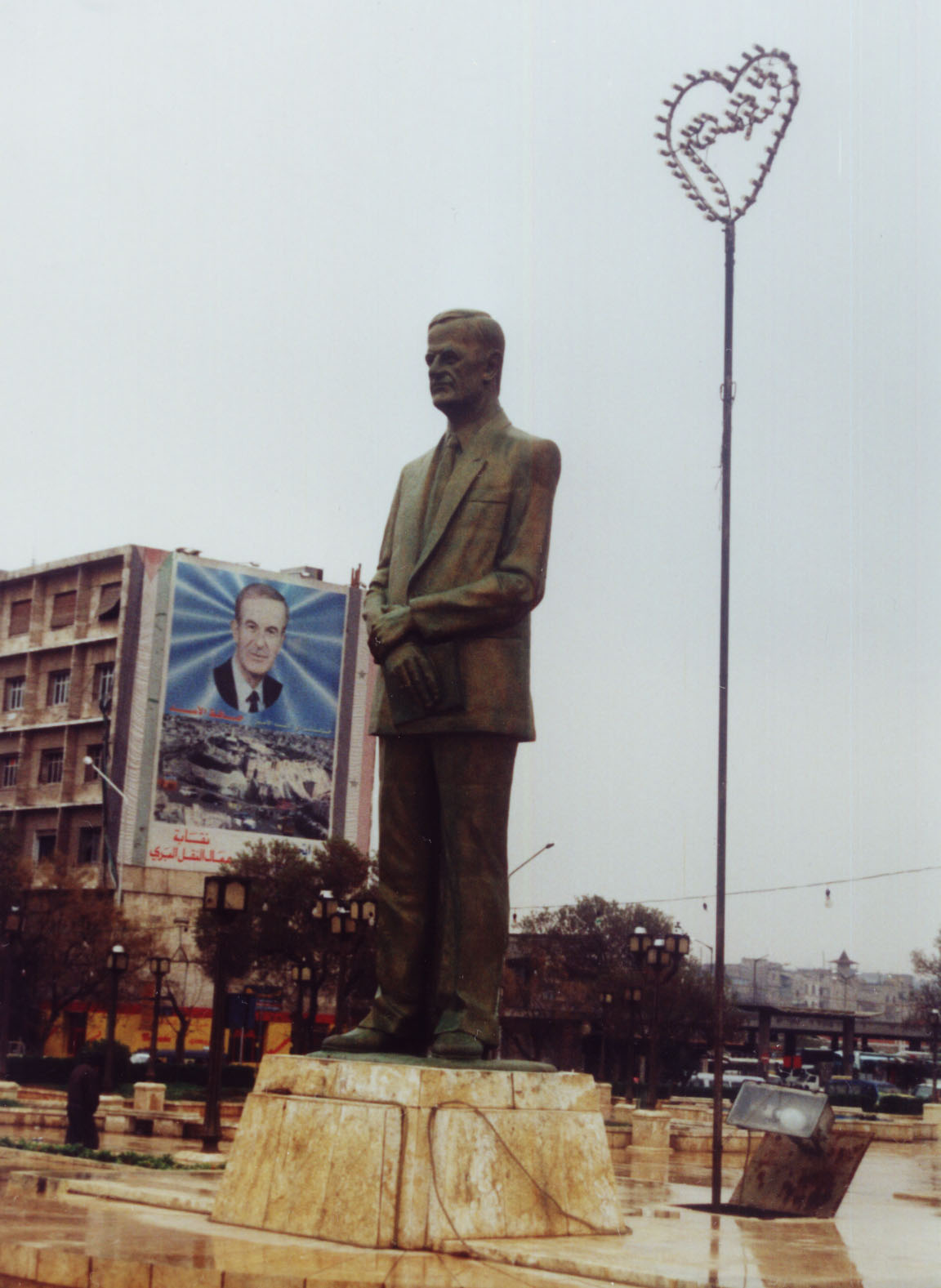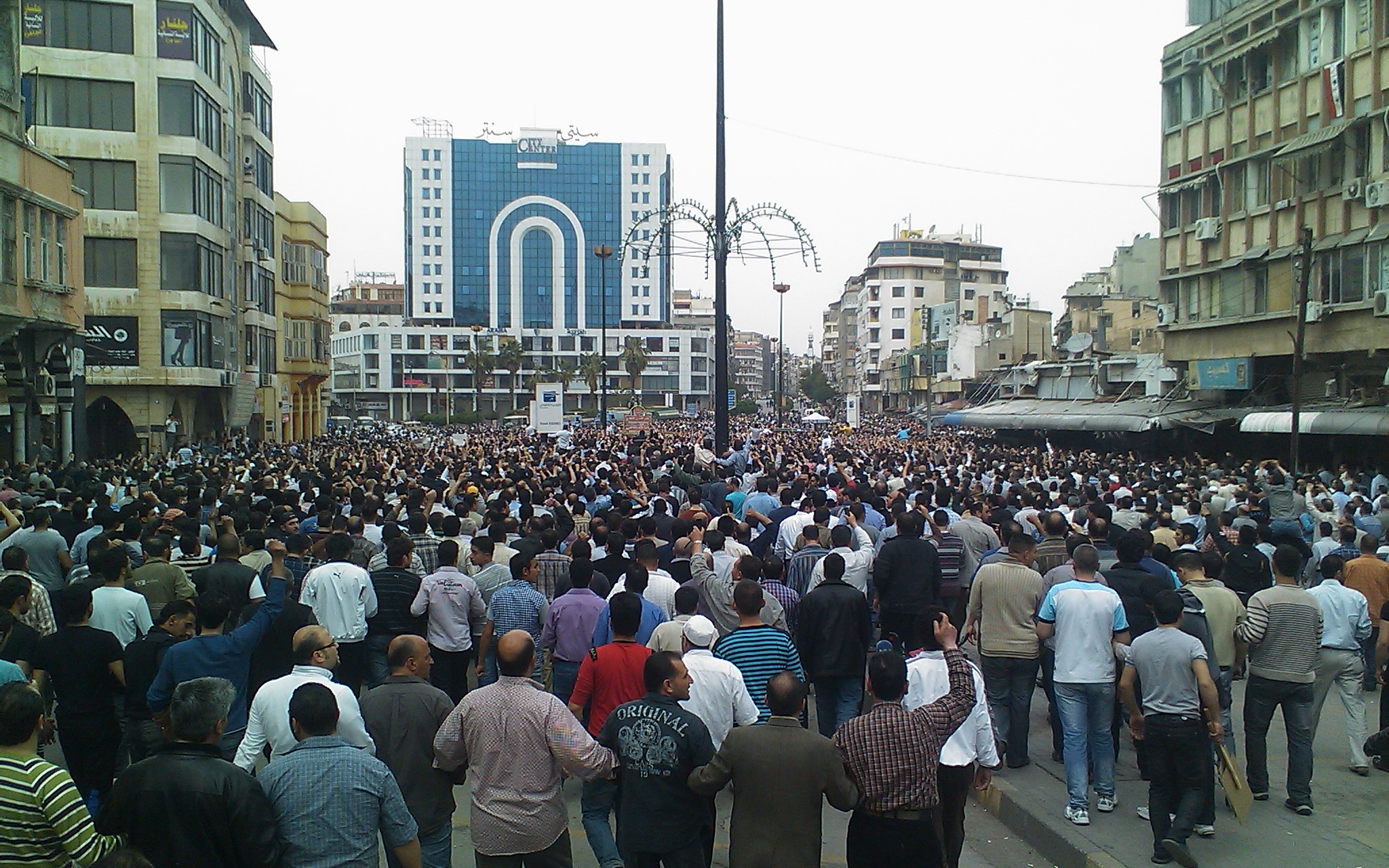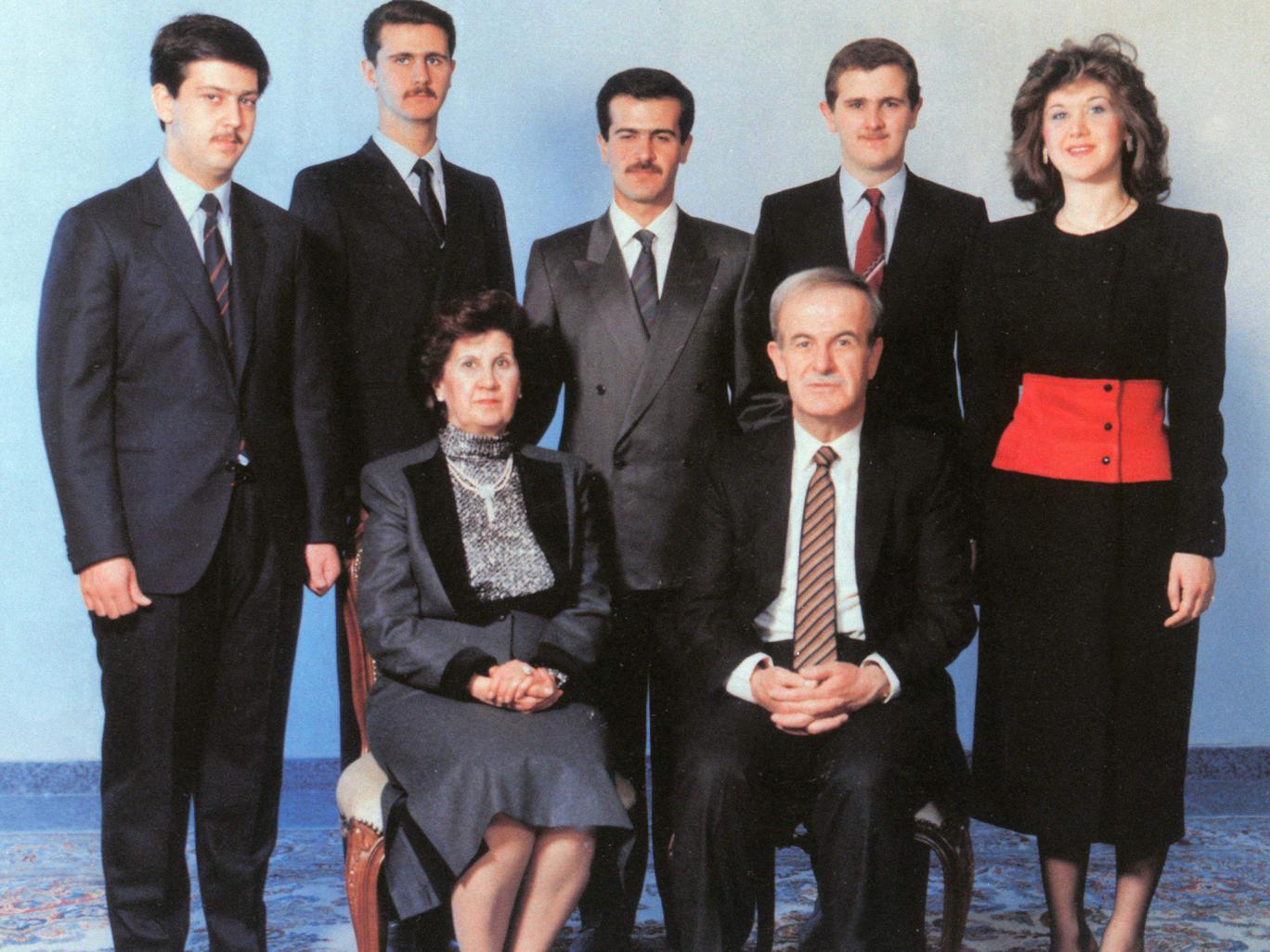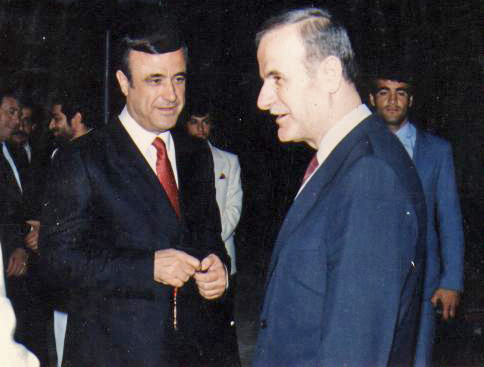|
Maher Al-Assad
Major General Maher Hafez al-Assad (, born 8 December 1967) is a Syrian former military officer who served as commander of the Syrian Army's elite 4th Armoured Division, which, together with Syria's Military Intelligence, formed the core of the Ba'athist regime's security forces until its collapse in 2024. He is the younger brother of former Syrian president Bashar al-Assad, and also was a member of the Central Committee of the Syrian Ba'ath Party. At the onset of the Syrian Revolution, Maher was thought by some to be the second-most powerful man in Syria after his brother Bashar, the president. Maher is considered a regime hardliner, who reportedly favored the crackdown against the Damascus Spring movement and has been implicated in UN reports of orchestrating the killing of Lebanese Prime Minister Rafic Hariri. Maher oversaw the crackdown against Syrian protestors at Daraa, which led to the US and the European Union announcing sanctions against him. Maher is de ... [...More Info...] [...Related Items...] OR: [Wikipedia] [Google] [Baidu] |
Al-Assad Family
The Assad family ruled Syria from 1971, when Hafez al-Assad became President of Syria, president under the Ba'ath Party (Syrian-dominated faction), Ba'ath Party following the Corrective Movement (Syria), 1970 coup, until Bashar al-Assad was Fall of the Assad regime, ousted on 8 December 2024. Bashar succeeded his father, Hafez al-Assad, after Death and state funeral of Hafez al-Assad, Hafez's death in 2000. The Assads are from Qardaha, Latakia Governorate. They attributed themselves to the Kalbiyya tribe. In 1927, Ali Sulayman al-Assad, Ali Sulayman arrived as an immigrant originally Kaka'i (Yarsanism) from Iran and changed his last name from ''al-Wahsh'', Arabic for 'the savage', to ''al-Assad'', 'the lion', possibly in connection with his social standing as a local mediator and his political activities. All members of the extended Assad family stem from Ali Sulayman and his second wife, Naissa, who came from a village in the Syrian Coastal Mountain Range, Syrian Coastal Mount ... [...More Info...] [...Related Items...] OR: [Wikipedia] [Google] [Baidu] |
Bushra Al-Assad
Bushra al-Assad (; born 24 October 1960) is the first child and only daughter of Hafez al-Assad, who was the president of Syria from 1971 to 2000. She is the sister of former Syrian President Bashar al-Assad. She is the widow of Assef Shawkat, the deputy chief of staff of the Syrian Armed Forces and former head of the Syrian Military Intelligence, who was killed in the 18 July 2012 Damascus bombing, responsibility for which was claimed by a coalition of Syrian opposition rebel groups. As a result of the Syrian Civil War, in March 2012 she was placed on a list of Syrian government figures who were subject to European Union economic sanctions and travel bans. On 28 September 2012, it was reported that Bushra al-Assad had fled from Syria with her five children to seek refuge in the United Arab Emirates. In January 2013, Bushra al-Assad was joined by her mother Anisa Makhlouf in Dubai. Biography Bushra is reported to have enjoyed a close relationship with her father Hafez al-Assad a ... [...More Info...] [...Related Items...] OR: [Wikipedia] [Google] [Baidu] |
United Nations
The United Nations (UN) is the Earth, global intergovernmental organization established by the signing of the Charter of the United Nations, UN Charter on 26 June 1945 with the stated purpose of maintaining international peace and international security, security, to develop friendly Diplomacy, relations among State (polity), states, to promote international cooperation, and to serve as a centre for harmonizing the actions of states in achieving those goals. The United Nations headquarters is located in New York City, with several other offices located in United Nations Office at Geneva, Geneva, United Nations Office at Nairobi, Nairobi, United Nations Office at Vienna, Vienna, and The Hague. The UN comprises six principal organizations: the United Nations General Assembly, General Assembly, the United Nations Security Council, Security Council, the United Nations Economic and Social Council, Economic and Social Council, the International Court of Justice, the United Nations Se ... [...More Info...] [...Related Items...] OR: [Wikipedia] [Google] [Baidu] |
Damascus Spring
The Damascus Spring (, ) was a period of intense political and social debate in Ba'athist Syria which started after the death of President Hafez al-Assad in June 2000 and continued to some degree until autumn 2001, when most of the activities associated with it were suppressed by the government of his son Bashar al-Assad. It started with the Statement of 99 and the establishing of the Committees of Civil Society, then the Statement of 1000 was issued carrying the signature of 1000 Syrian intellectuals in 2001. Background Officially a republic, Ba'athist Syria had been governed by the Ba'ath Party since 1963, and by the Assadists since 1970, until they were overthrown in 2024. A state of emergency was in place from 1963 until 2011. Under Hafez al-Assad, president of Syria from 1971 until his death in 2000, political activity had been strictly controlled, and from 1980 onwards effective opposition activity became almost impossible. Five principal security agencies served pr ... [...More Info...] [...Related Items...] OR: [Wikipedia] [Google] [Baidu] |
Syrian Revolution
The Syrian revolution, also known as the Syrian Revolution of Dignity, was a series of mass protests and civilian uprisings throughout Syria – with a subsequent violent reaction by the Ba'athist regime – lasting from 15 March 2011 to 8 December 2024 as part of the greater Arab Spring in the Arab world. The revolution, which demanded the end of the decades-long Assad family rule, began as minor demonstrations during January 2011 and transformed into large nation-wide protests in March. The uprising was marked by mass protests against the Ba'athist dictatorship of president Bashar al-Assad meeting police and military violence, massive arrests and a brutal crackdown, resulting in hundreds of thousands of deaths and tens of thousands wounded. 13 years after the start of the revolution, the Assad regime fell in 2024 after a series of rebel offensives. Despite al-Assad's attempts to crush the protests with crackdowns, censorship and concessions, the mass protests had become a ... [...More Info...] [...Related Items...] OR: [Wikipedia] [Google] [Baidu] |
Arab Socialist Ba'ath Party – Syria Region
The Arab Socialist Ba'ath Party – Syria Region ( ''Ḥizb al-Ba'th al-'Arabī al-Ishtirākī – Quṭr Sūriyā''), officially the Syrian Regional Branch (), was a Neo-Ba'athism, neo-Ba'athist organisation founded on 7 April 1947 by Michel Aflaq, Salah al-Din al-Bitar and followers of Zaki al-Arsuzi. The party Ba'athist Syria, ruled Syria from the 1963 Syrian coup d'état, 1963 coup d'état, which brought the Ba'athists to power, until 8 December 2024, when Bashar al-Assad fled Damascus in the face of a rebel offensive during the Syrian Civil War. It was formally disbanded in January 2025. The party was founded on 7 April 1947 as the Ba'ath Party, Arab Ba'ath Party through the merger of the Arab Ba'ath Movement led by Michel Aflaq, Michel ʿAflaq and Salah al-Din al-Bitar and the Arab Ba'ath, led by Zaki al-Arsuzi. The party espoused Ba'athism, which is an ideology mixing Arab nationalism, Arab nationalist, Pan-Arabism, pan-Arab, Arab socialism, Arab socialist, and Anti-impe ... [...More Info...] [...Related Items...] OR: [Wikipedia] [Google] [Baidu] |
President Of Syria
The president of Syria (), officially the president of the Syrian Arab Republic, is the head of state and head of government of Syria. The president directs the executive branch and serves as the commander-in-chief of the Syrian Army and Syrian Armed Forces, Armed Forces. The president represents the nation in international relations and formalizes treaties with foreign countries. In 1922, French authorities created the Syrian Federation under the Mandate for Syria and Lebanon, with Subhi Barakat serving as its president. The federation was short-lived and was replaced by the State of Syria in 1925. Barakat briefly remained president until the outbreak of the Great Syrian Revolt later that year, which led to his resignation. He was succeeded by Ahmad Nami, who served as president until his removal in 1928. In the following years, the Syrian presidency underwent several changes in leadership, including a coup by Husni al-Za'im in March 1949 Syrian coup d'état, March 1949, follow ... [...More Info...] [...Related Items...] OR: [Wikipedia] [Google] [Baidu] |
Fall Of The Assad Regime
On 8 December 2024, the Assad regime collapsed during a 2024 Syrian opposition offensives, major offensive by Syrian opposition, opposition forces. The offensive was spearheaded by Hay'at Tahrir al-Sham (HTS) and supported mainly by the Turkish-backed Syrian National Army as part of the ongoing Syrian civil war that began with the Syrian revolution in 2011. The Fall of Damascus (2024), capture of Syria's capital, Damascus, marked the end of the Assad family's rule, which had governed Syria as a hereditary Totalitarianism, totalitarian dictatorship since Hafez al-Assad assumed power in 1971 after a Corrective Movement (Syria), successful coup d'état. As Southern Operations Room, a rebel coalition advanced towards Damascus, reports emerged that Bashar al-Assad had fled the capital aboard a plane to Russia, where he joined his family, already in exile, and was granted Right of asylum, asylum. Following his departure, opposition forces declared victory on state television. Concu ... [...More Info...] [...Related Items...] OR: [Wikipedia] [Google] [Baidu] |
Military Intelligence Directorate (Syria)
The Military Intelligence Directorate (MID; ) was the military intelligence service of Ba'athist Syria until 2024. Although its roots go back to the French mandate period, its current organization was established in 1969.Conflict Studies Journal at the University of New Brunswick . Lib.unb.ca. Retrieved on 19 October 2010. Its predecessor organization was called the Second Bureau. It was headquartered at the Defense Ministry building in . The militar ... [...More Info...] [...Related Items...] OR: [Wikipedia] [Google] [Baidu] |
Rifaat Al-Assad
Rifaat Ali al-Assad (; born 22 August 1937) is a Syrian former military officer and politician. He is the younger brother of the late President of Syria, Hafez al-Assad, and Jamil al-Assad, and the uncle of the former President Bashar al-Assad. He was the commanding officer of the ground operations of the 1982 Hama massacre ordered by his brother. After launching a 1984 Syrian coup attempt, failed coup attempt against Hafez al-Assad in 1984, Rifaat lived in exile in Europe for 36 years and returned to Syria in October 2021 after being found guilty in France of acquiring millions of euros diverted from the Syrian state. In September 2022, France's highest court, the Court of Cassation (France), Cour de Cassation, confirmed the ruling. In August 2023, Switzerland issued an international warrant for Rifaat's arrest after its Federal Criminal Court of Switzerland, Federal Criminal Court demanded his extradition to prosecute him for his role in supervising ground operations of the 19 ... [...More Info...] [...Related Items...] OR: [Wikipedia] [Google] [Baidu] |
Jamil Al-Assad
Jamil al-Assad (; 1933 – 15 December 2004) was a younger brother of the late Syrian president Hafez al-Assad, and the uncle of former Syrian President Bashar al-Assad. He served in the People's Assembly of Syria from 1971 until his death in 2004. He was also commander of a minor militia. Activities While both his brothers, Hafez and Rifaat al-Assad, enforced secularism, Jamil was said to be deeply religious. During the 1980s, Jamil actively supported conversion to Shiism in the Latakia Mountains, especially among members of the Alawite community. He sent groups of Alawites to study Twelver Shiism in Iran. They made the Shiite creed common among their fellow Alawites upon their return to Syria. Jamil also built husayniyyas in the mountains, where before there had been only Alawite shrines. In order to make Shiism more acceptable there he appointed a Shiite sheikh to head the Alawite al-Zahra Mosque in the city of Baniyas. He also allowed Iranian officials to enter Syria to realize ... [...More Info...] [...Related Items...] OR: [Wikipedia] [Google] [Baidu] |








